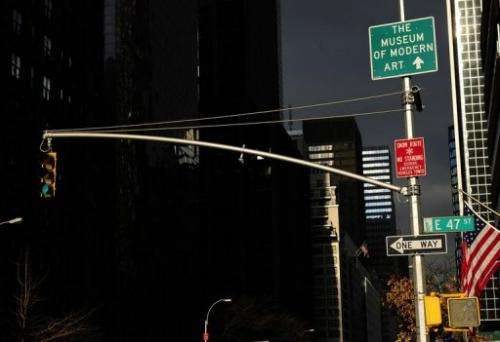Upgraded urban travel 'could save $70 trillion by 2050'

Urban planners must re-invent city transportation systems to save up to $70 trillion globally in the next 37 years, a study said on Wednesday citing the examples of Belgrade, Seoul and New York City.
This estimate of the huge potential savings on vehicles, fuel and infrastructure by 2050 came from the International Energy Agency in a report titled "A Tale of Renewed Cities".
"More than half of the world's population already lives in cities, many of which suffer from traffic jams and overcrowded roads that cost hundred of billions of dollars in lost fuel and time and that harm environmental quality, health and safety," the report said.
The IEA is the energy policy arm of the Paris-based Organisation for Economic Cooperation and Development, a policy research body for 34 leading countries.
The agency's executive director Maria van der Hoeven said that policymakers had to look beyond particular technologies and election timetables.
They should "consider how to build—and how to renew—cities that will accommodate and transport nearly 6.3 billion people by 2050.
"We must plan infrastructure, logistics and energy systems now that make sense today and over the coming decades," she said in a statement.
The report was based on case studies of more than 30 cities around the world which had improved the efficiency of transportation systems, reduced greenhouse gases and improved the quality of life.
"Within the first six months of refurbishing its urban rail system, Belgrade tripled passenger levels," the report said, citing one example.
"When Seoul pushed through reforms that no longer rewarded bus operators for carrying more people, ridership, speed and safety all increased.
"And New York shaved 11 minutes off travel times within a year of introducing express bus services, while at the same time attracting more passengers.
Van der Hoeven said it was expected that nearly 70 percent of the world population would live in cities by 2050 and that energy consumption for urban transportation will double. "Urgent steps" are needed to improve the transportation systems, she said.
The report, backed by the European Bank for Reconstruction and Development, suggests policy frameworks to help urban planners.
© 2013 AFP




















